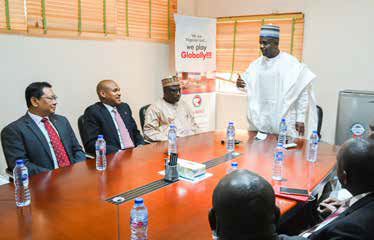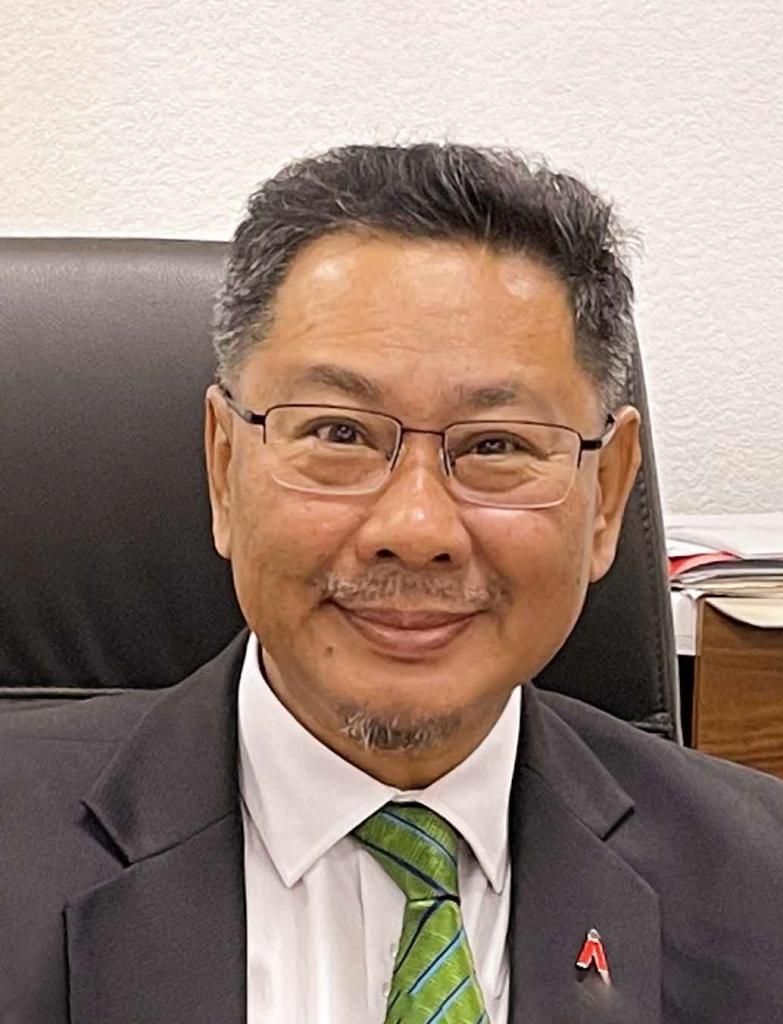NORFADELIZAN ABDUL RAHMAN
Managing Director & CEO at TAJBank Ltd
Since February 2021, ISFIRE has a brand-new format for Personality Interviews. We ask 15 questions from leading personalities in Islamic banking and finance (IsBF). The objective is to help our readers look into the minds of successful people in IsBF or any other related business/profession. Our ISFIRE Personality of the Issue is Norfadelizan Abdul Rahman, Managing Director, and CEO of TAJBank Ltd.

ISLAMIC BANKING AND FINANCE – IN ONE SENTENCE – WHAT DOES IT STAND FOR, FOR YOU?
I see Islamic banking and finance as an industry where ethical and Shari’a-compliant financial services are offered to individuals and organisations.
YOU MAY EXPRESS MORE BROADLY YOUR VIEWS ON ISLAMIC BANKING AND FINANCE – HAS YOU REALLY FOUND IT DIFFERENT FROM THE MAINSTREAM BANKING AND FINANCE?
Yes and no. It is different as far as it complies with Shari’a. However, unfortunately, Islamic banking acts as a subset of the conventional banking framework, making its products and services economically similar in value. The only deviation is Shari’a compliance.
WHAT ROLE ISLAMIC BANKING AND FINANCE HAS PLAYED IN YOUR COUNTRY?
In Malaysia, it has done wonders.
In Nigeria, where I am now serving, Islamic finance is growing rapidly to meet the demand for the large Muslim population looking for Halal/ethical financial services. In Islamic capital market, sukuk has and will continue to play a significant role in meeting large corporations and government financing needs.
‘’I do not believe much in mentors, but I learn from others’ mistakes and have the knack to adapt to changing environments.’’
WHAT HAS BEEN YOUR MOST-PRICED ACHIEVEMENT SO FAR?
There are many. In Malaysia, for example, my most significant achievement was the successful establishment of the Bursa Suq Al-Sila, an international multi-currency and multi-commodity trading platform made under Bursa Malaysia. In Nigeria, it was the establishment of the second Islamic bank. It is famous for providing innovative services. There are many more.

HAVE YOU PERSONALLY BENEFITTED FROM ISLAMIC BANKING AND FINANCE? TO BE PRECISE, WOULD YOU ATTRIBUTE YOUR SUCCESS IN ISLAMIC BANKING TO YOUR HARD WORK OR TO THE OPPORTUNITY OFFERED BY SOME PROJECT IN THE FIELD?
It went both ways. I have been acknowledged for building successful products and institutions. However, my award-winning career is because of the opportunities offered by the Islamic banking and finance industry in different countries.
AS A MANAGING DIRECTOR, WHAT THREE CONCERNS KEEP YOU UP AT NIGHT ABOUT YOUR ORGANISATION’S FUTURE?
Three concerns keep me on my toes. One, to meet Shari’a compliance in financial governance. Two, to meet the profit targets while keeping business risk at an acceptable level. Finally, to strategically communicate the image of Islamic banking as a Shari’a-compliant entity and plan future market share.
WHAT FACTORS (PERSONAL, FAMILY, EDUCATION, MENTORS, ETC.) HAVE CONTRIBUTED TO YOUR SUCCESS?
Leadership traits are essential for success. I try to lead by example, for which I strive to exhibit a clean, strong, upbeat, and accommodating personality. I do not believe much in mentors, but I learn from others’ mistakes and have a knack to adapt to changing environments. Finally, I owe my success to my family.
WHAT ARE THE FAILURES IN YOUR CAREER THAT YOU WOULD LIKE TO CORRECT IF GIVEN AN OPPORTUNITY?
In my role as an Islamic banker, tolerance for failure is almost zero. Since some mistakes can prove detrimental and beyond repair, therefore, we remain vigilant and correct course as soon as we hit a snag. However, on a personal level, my biggest failure is my inability to attain a PhD because of my hectic career.
HOW DO YOU DEAL WITH DIFFERENT PERSONALITIES IN THE WORKPLACE?
Although we have standard policies and procedures to handle people at different levels, I am usually more straightforward and demand perfection from those under my direct supervision. I appreciate the cultural differences people bring to our organisation and try to adapt to them as fast as possible.

As somebody who has worked in a leadership capacity in different countries, I have a rich experience working with people from different cultures.
THE READERS WOULD LIKE TO KNOW ABOUT THINGS YOU STRUGGLED WITH EARLY ON IN YOUR CAREER, AND HOW YOU OVERCAME IT.
I have never been good at mathematics when in school. Ironically, my initial career years were spent in the treasury side of banking, which requires technical aptitude. It was pretty challenging to work in the money market, forex, capital market, and derivatives. I have survived by not only working hard but also being smart. Instead of blindly following others, I preferred finding new solutions to problems.
IF YOU HAD MULTIPLE PROJECTS AND LIMITED TIME, HOW WOULD YOU MANAGE YOUR PRIORITIES?
In a leadership position, one is required to use jugglers’ skills. The art of managing the ever-changing environment has never been an easy task. One of my well-wishers advised me to compartmentalise issues and treat them separately. I priorities my work. It makes resource management and allocation much easier. Equally important is to devise a mechanism to control smartly. The trick is to strike a balance between empowering people and monitoring them effectively.
WHAT DO YOU FIND MOST REWARDING IN YOUR CURRENT ROLE?
Apart from financial rewards, I draw an immense sense of accomplishment from the success of the organisation and the people I had nurtured and developed.
TELL US ABOUT A CHALLENGE YOU FACED AND HOW YOU HANDLED IT.
I encountered different sets of challenges in the later years of my career. Since I had to play a leadership role, I had to be careful about my facial expressions and tone of my voice. These things could complicate the process of communication. Wrong or localised English can also prove detrimental. I had no choice but to be dynamic and find a way to provide results. Moreover, all these juggling and adaptions had to be done in a reasonably short time.
WHO IS YOUR ROLE MODEL AND WHY?
I have had different role models. One of the best was my senior at Maybank. He taught me to “manage by numbers.” The number is the universal language of all banks, including Islamic banks.
IF YOU COULD GO BACK FIVE YEARS, WHAT ADVICE WOULD YOU GIVE TO YOUNGSTERS?
Keep your composure despite facing a life-threatening situation. Remember, no storm lasts forever.




